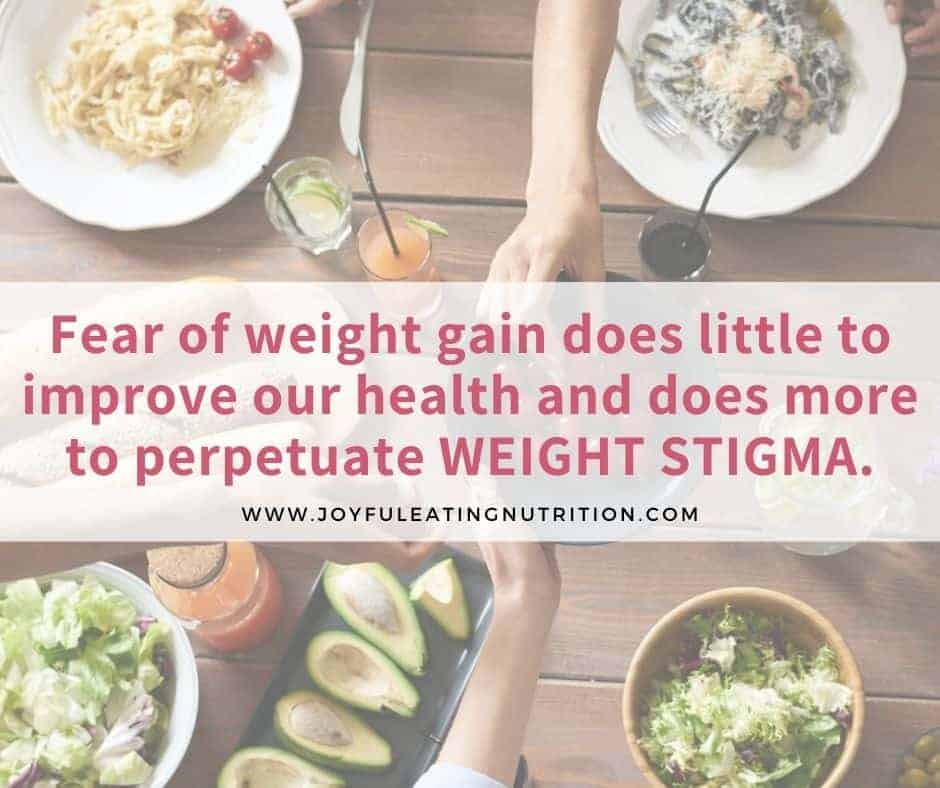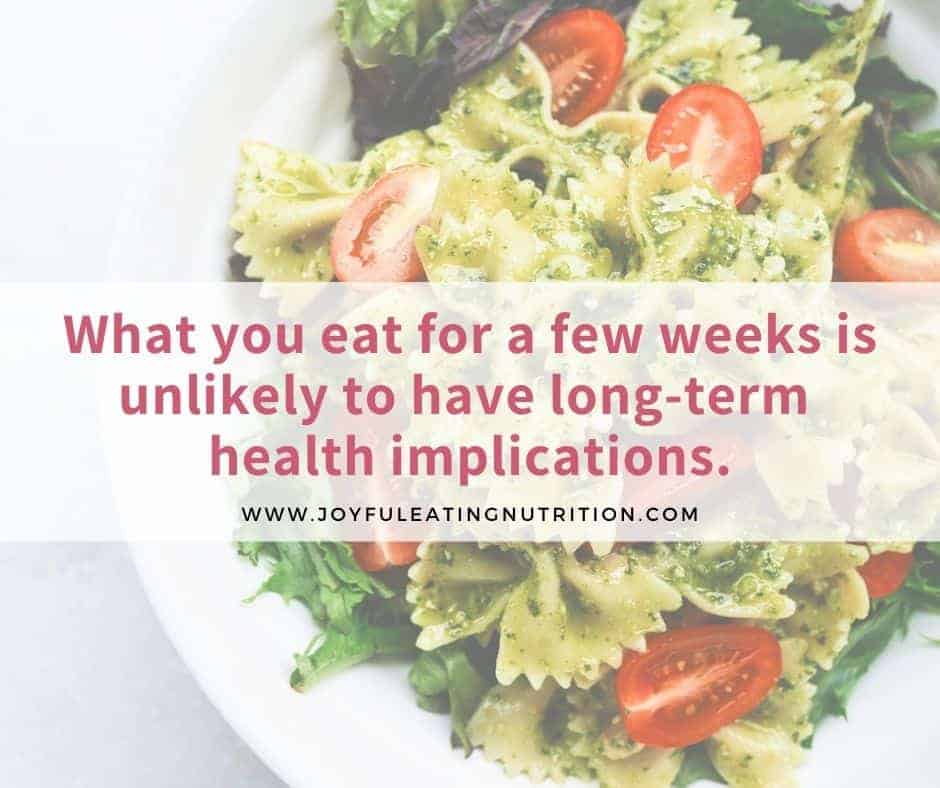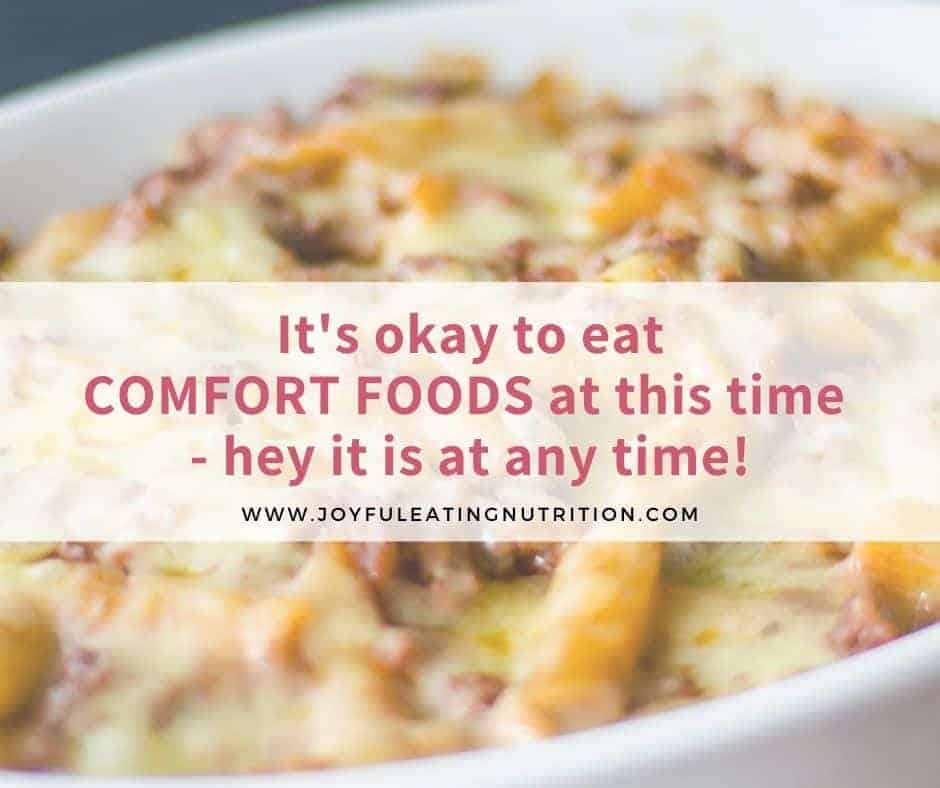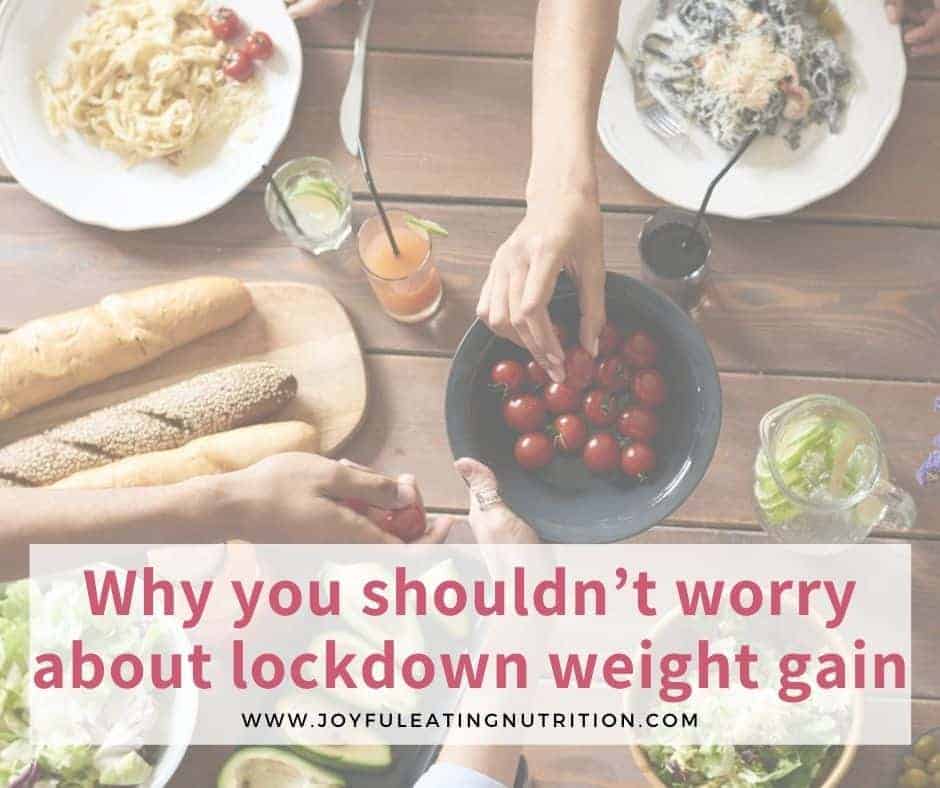The media are warning of the risk of gaining weight during lockdown. However, concerning yourself with your weight at this time is not beneficial for your health. Allow me to explain.
In this time of lockdown and isolation, we may find that our eating behaviours have changed, which is completely understandable—our routines have been disrupted.
Our eating may have changed as we want to avoid excessive trips to the supermarket. Thus, we may be eating more packaged food. Alternatively, we may be making more foods from scratch.
Some of us may be trying our hand at baking or preparing other treats as a way to pass the time, get creative or connect with family. As a consequence, we may eat simply because the food is there rather than due to true physical hunger.
We may find ourselves snacking more frequently because we are within reach of our kitchens all-day-long, or we are bored. Further, stress and anxiety can cause us to eat more and choose more energy-dense foods.
Lockdown and isolation has triggered a fear of weight gain
As a consequence of our altered eating habits, the media warn of the risk of gaining weight during this time. There are headlines such as, “How not to balloon inside your bubble”, “Lockdown tips for weight control”, and “Abs during lockdown is the unwanted pandemic”.
Furthermore, some companies are taking advantage of this opportunity to sell online weight loss and exercise programs ‘to keep you in shape’.
Now let me be clear; there is absolutely nothing wrong with eating to nourish your body or partaking in home-based exercise programs. I’ve been doing online yoga for the past five years!
The issue is the fear that these headlines evoke. Fear of weight gain does little to improve our health and does more to perpetuate weight stigma.

Let’s not perpetuate weight stigma during these uncertain times (or any time)
Any thoughts or comments about our own or another person’s weight perpetuates weight stigma, which is the negative association with body weight and size. Not only does weight stigma increase feelings of being out of control with eating and reduce motivation to exercise, it impacts health in itself.
Weight stigma, independent of body mass index, has been associated with declined health markers, such as blood pressure, lipids and sugars (Daly, 2017 ). Therefore, just thinking that you’re fat or feeling unsatisfied with your weight and body has potential health implications.
We need to stop using weight as a measure of someone’s health, or self-worth.
I’ve written about the health implications of weight stigma in a blog called, How the goal of weight loss can undermine health, and in my book, Joyful Eating: How to Break Free of Diets and Make Peace with Your Body.
Don’t shame people or guilt yourself for your lockdown weight
The thing is, whether you lose or gain a few kilos during lockdown, and the subsequent weeks (or months), it’s unlikely to have any long-term consequences on your health.
What you eat for a few weeks is unlikely to have long-term health implications.
Moreover, weight loss doesn’t mean an improvement in health. Nor does weight gain mean that we are becoming less healthy. A few kilograms are unlikely to have an impact on our health, long-term.

Anyway, the jury is out as to whether being in lockdown or isolation is good or bad for our health.
Health implications of lockdown are unknown
Although we may be snacking or indulging more, some healthy lifestyle behaviours may have arisen from spending time in lockdown and isolation.
It may be that you are now eating more homemade meals cooked from scratch, which are lower in sodium, saturated fat and sugar than takeaways. It could be that you’re taking more walks. You may be feeling more relaxed (not in a rush) when eating meals. And you may be taking more time to eat while enjoying the company of others in your bubble.
How these positive health behaviours balance with eating more homemade treats is uncertain and is very individual.
Any sweeping statements by the media that we are getting healthier or not, or that our health is associated with losing or gaining a few kilograms, grossly oversimplifies health.
What we do know for sure is that blaming and shaming ourselves for our eating, and attempting to lose weight during already stressful and uncertain times, is more likely to have negative implications for our health.
Blame and shame perpetuate the health impacts of weight stigma.
Furthermore, blame and shame can cause us to try to compensate for our overindulgences. Thus, causing us to adopt excessive exercise to ‘burn-off’ our indulges or attempt to harness more control over our dietary intake. All this does is keep us trapped in the diet cycle of restrict-binge.
Our health is impacted by more than what we eat
A focus on weight and whether people are more or less healthy as a consequence of lockdown or isolation also ignores how socioeconomic factors impact our health and lifestyle behaviours.
As a consequence of lockdown and isolation, people may be experiencing immense stress, and financial strain, or a lack of food security, all of which can have an impact on mental and physical health.
Oversimplification of health consequences does not acknowledge the individuality of people’s situation and response to it.
Honour what you require right now; physically, mentally and emotionally
An alternative to effectively starting a diet or lifestyle program to lose weight, or to get healthy, is to accept that your eating and body is what it is right now. Instead of fighting and resisting your eating or body, which essentially leads to more stress, it is possible to take a more accepting and balanced approach to self-nourishment and self-care.
So, rather than seeing the experience of lockdown or isolation as positive or negative, you could reflect on what eating behaviours, approaches to cooking or recipes you’ve tried that you would or would not like to carry forward. In this way, you can take a gentler approach to adopt or maintain health-promoting lifestyle behaviours, rather than attempt to follow rigid plans or rules that most of us can only sustain for a short time before we revert to our old behaviours.
During lockdown and isolation, have you adopted any eating behaviours (or recipes) you would or would not like to carry forward?
By taking an approach founded on self-awareness rather than attempting to control your behaviours, you will be better able to assess your true reasons for eating. So, for example, when you reach for food, rather than guilt or blame yourself, you could determine whether you are eating for hunger or other reasons, such as habit, boredom, comfort, stress etc.
If you find that you are eating to self-soothe, to distract, out of habit or for something to do, you can then determine what you truly require.
Be easy on yourself for your changed eating behaviour
It could be that you choose to undertake activities other than eating to increase joy or to distract you from your thoughts.
However, if you reach for food, try not to blame or shame yourself for it. It is perfectly normal to reach for food as a comfort.

Guilt, blame and shame do more to keep you trapped in a binge-restrict cycle, which has harmful consequences on physiological and psychological health.
Therefore, I encourage you to avoid the temptation to ‘make up for’ your eating and lifestyle behaviours during lockdown.
Be easy on yourself. Try to honour what your body requires without falling into the diet mentality of what you should or should not be eating.
In all likelihood, you’ll resume a routine soon. And what you do for some weeks (or months) is unlikely to have a long-term impact on your health.

